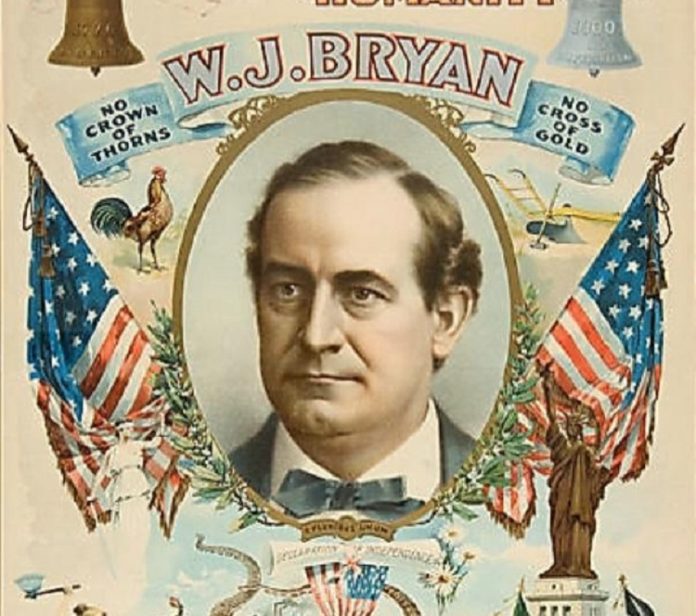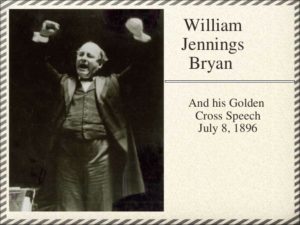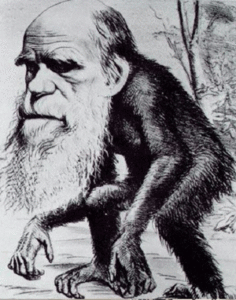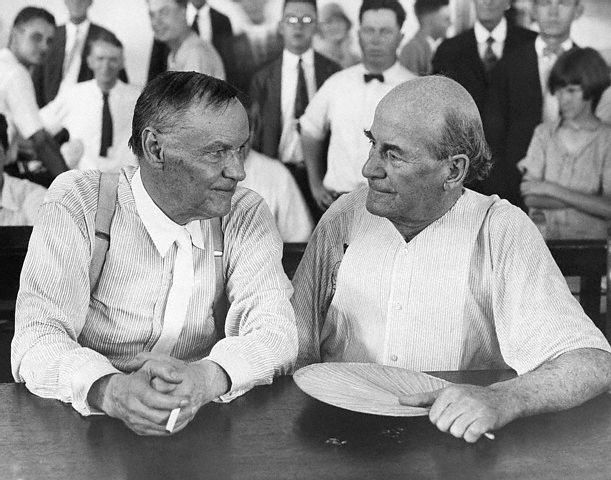
Iowa’s long tradition of heavy involvement in presidential politics goes back much further than most people realize. One of the most colorful political orators in U.S. history made appearances in Dawson, Minburn and other parts of Dallas County in 1896, 1900, and 1908: William Jennings Bryan.
Bryan got his start as a Nebraska congressman in 1890 after leaving his home state of Illinois. A staunch Democrat, he saw no future in the land of Lincoln. Born in 1860, the “Boy Orator of the Platte” inherited his parents’ intense commitment to the Democratic Party and a passionate protestant faith.
Bryan was reelected to Congress in 1892 and earned great respect for his oratorical skills. He became a leader of the free-silver Democrats. In 1894 he persuaded Nebraska Democrats to support the state’s Populist Party.

In 1896, he delivered his stirring Cross of Gold speech, favoring free silver, to the Democratic convention and succeeded in capturing the presidential nomination. Interestingly, Bryan was also nominated by the Populists because of his agreement with their view that government should protect individual citizens from corporate tyranny.
During the 1896 campaign, Bryan traveled 18,000 miles and shook thousands of hands. His efforts weren’t enough, though, and he lost the election to William McKinley. McKinley’s victory ensured a generation of Republican dominance in the nation’s political scene.
Major changes also encouraged the Democratic Party to evolve from the minimalist view of government favored by Andrew Jackson to a more positive one about the role of the federal government.
Bryan was a colonel in a Nebraska regiment during the Spanish American War but was a critic of President McKinley’s Philippine occupation. He was the Democratic nominee again in 1900, but his hopes of campaigning against imperialism were dashed by the free silver and corporate monopoly issues. McKinley was the victor again.
His second defeat prompted Bryan to start a newspaper and make frequent speaking tours. His superb oratorical skills were able to make up for his lack of deep, original thinking, and he continued to advocate for his views, including equality, greater public participation in government decisions, opposition to corporate monopoly and faith in God.
“Shall the People Rule?” was the watchword for his third failed presidential bid in 1908, when he lost to William Howard Taft.
Bryan never ran again but used his influence in the Democratic Party to nominate and help elect Woodrow Wilson president in 1912. Wilson named Bryan U.S. Secretary of State.
After World War I broke out, Bryan tried cooling off treaties among the combatants to ease tensions. It was no use. As the U.S. inched toward war, he tried to advocate restrictions on American citizens and companies to stop them from sending the nation to war.
When the sinking of the Lusitania resulted in Wilson sending a strong protest to Germany, Bryan resigned rather than send a message that might commit the country to a war.
For the rest of his life, Bryan continued to advocate for prohibition, peace and women’s suffrage. He also became an increasingly vocal critic of the theory of evolution and strongly opposed its inclusion in public school curricula.

His intense opposition to Darwinian evolution led him to join the prosecution team in the trial in Tennessee of high school substitute teacher John Scopes, who dared to teach evolution in the classroom and consequently faced charges of violating state law.
Unfortunately for Bryan, famed prosecutor Clarence Darrow put him on the witness stand and showed that Bryan knew virtually nothing about archaeology and science. Bryan famously replied to Darrow’s questions, “I do not care about the age of rocks, sir, but about the Rock of Ages.”
Scopes was convicted. Bryan died shortly after the trial ended in 1925.
William Jennings Bryan was one of many national politicians to pass through the pages of Dallas County history. Dallas County and the town of Dexter later played a major role in the revitalization of Harry Truman’s political career in 1948. That amazing story will be told in another article later this year.


















My great-grandparents were fans of William Jennings Bryan. They even named a son Jennings Bryan Goff. He went by J.B.